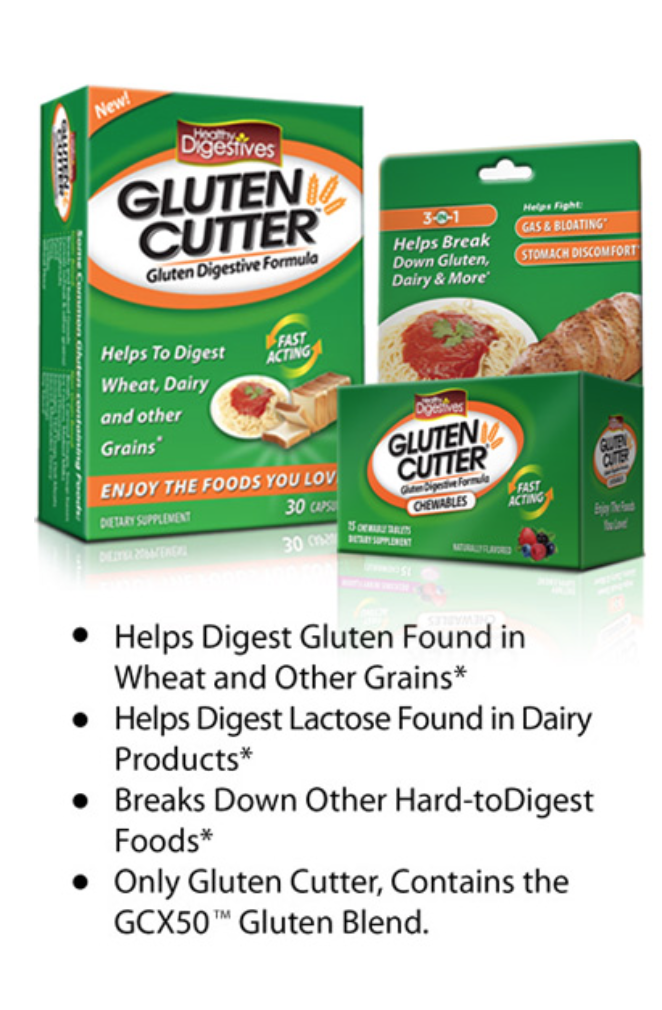
Gluten intolerance and Celiac’s Disease appear to be on the rise. I have witnessed first hand the devastating symptoms of the disease: uncontrollable vomiting, uncontrolled body temperature, changes in blood pressure, diarrhea, etc. with my father. Even the slightest gluten contamination can make a Celiac very sick.
In contrast, friends that avoid gluten speak of symptoms like brain fog, tiredness, and stomachaches. Accidental contamination does not cause them to suffer in the same way.
The Difference Between Celiac’s Disease and Gluten Intolerance
According to the University of Chicago Medicine Celiac Disease Center:
Celiac disease is an inherited autoimmune disorder that affects the digestive process of the small intestine. When a person who has celiac disease consumes gluten, a protein found in wheat, rye and barley, the individual’s immune system responds by attacking the small intestine and inhibiting the absorption of important nutrients into the body. Undiagnosed and untreated, celiac disease can lead to the development of other autoimmune disorders, as well as osteoporosis, infertility, neurological conditions and in rare cases, cancer.((https://www.cureceliacdisease.org/wp-content/uploads/341_CDCFactSheets8_FactsFigures.pdf))
Celiac Disease differs from gluten intolerance in the severity of symptoms and diagnosis. Gluten intolerance goes by many names such as non-celiac gluten sensitivity, gluten sensitivity, or non-celiac wheat sensitivity. It is not an autoimmune disorder. The Gluten Intolerance Group explains:
- Celiac disease diagnosis involves blood screening followed (in the case of positive results) by small intestine biopsy. A patient must be consuming a gluten-containing diet for accurate diagnosis, which is usually made by a gastroenterologist.
- Non-celiac gluten sensitivity is a “rule-out” diagnosis, which involves testing for and ruling out celiac disease, wheat allergy, and other disorders which could be associated with your symptoms. After the above testing, if the removal of gluten from the diet improves symptoms, this may be diagnostic for NCGS. Diagnosis can be made by a gastroenterologist or primary care physician.((https://www.gluten.org/resources/getting-started/celiac-disease-non-celiac-sensitivity-or-wheat-allergy-what-is-the-difference/))
Not to diminish the effects of gluten intolerance; however, the rise of this food sensitivity has created misinformation that leads to contamination and serious side effects for Celiacs. Many people don’t realize the places gluten is hidden in ingredients like vanillin, shredded cheese, white vinegar, and thus contamination happens for Celiacs. This lack of knowledge is potentially harmful. I’ve seen it happen with my father when he has eaten “gluten-free” listings on restaurant menus.
We were sent the following product that may further confuse the gluten issue.

Gluten Cutter promises it “Helps to digest wheat, dairy, and other grains. Enjoy the foods you love!” If you are Celiac, this product will not cure you. In fact, it could be dangerous, as each gluten exposure can cause damage. That being said, a product like this may help a Celiac recover after accidental exposure. I found the following anecdote on a Celiac forum:
I tried gluten cutter last night after I’d been accidentally glutened from catered food at an event. It helped alot. I had terrible abdominal cramps, and because the catered food was from a franchise I was able to look up the ingredients online, and yep, there was a small amount of flour in one of the dishes I ate… one that the caterer had assured me was gluten free. Within ten minutes of taking Gluten Cutter the cramps went away entirely. Nor did I get any of my other usual symptoms–exhaustion followed later by insomnia, diarrhea, sever hunger. Keep in mind that I took the Gluten Cutter within 15 minutes of consuming the gluten… it probably wouldn’t work if taken an hour or two after glutening.
Obviously this doesn’t mean that a person with celiac disease should be gobbling down gluten and then trying to counteract it with Gluten Cutter. (Remember, the amount of gluten I’d consumed was only a VERY small amount). However, based on my own experiences, if, in the future, I suspect I’ve been accidentally glutened, or if I’m going to eat where I know there’s a good chance that trace amounts of gluten might be in supposedly gluten-free food, I will certainly take a dose of Gluten Cutter with the meal. It’s more like an ADDITIONAL prophylactic to assist all one’s other efforts to completely avoid gluten (while still leading a normal life!).((https://www.celiac.com/gluten-free/topic/101959-gluten-cutter-digestive-aid/))
Other suggestions for accidental exposure are to take activated charcoal and avoid dairy products.((https://www.glutenfreeliving.com/gluten-free-lifestyle/tips-advice/tips-recover-gluten-exposure/))
If you are gluten intolerant, Gluten Cutter may help, as many digestive enzyme can for food issues.
Gluten Cutter™ is a digestive aid exclusively formulated with GCX50™, an advanced blend of GMO-Free, plant based enzymes that specifically target and break down gluten as well as other hard-to-digest foods into simpler forms that your body can digest.* This helps to decrease indigestion (e.g. feeling of fullness, gas, bloating) that can occur after meals which allows you to maintain a more normal diet.*
I have a hard time endorsing a product like this. There is so much confusion around digestive issues and food sensitivities. I’ve followed many suggestions off the internet and from packaging label promises with no avail. The only sure way to know what you need is to visit a naturopath.
I recommend that you get tested for food sensitivities rather than simply trying elimination diets. In my experience, my naturopath has been able to pinpoint what probiotic I need, as well as which digestive enzymes are best for me. In addition, I found out specifically what foods I am sensitive to.
One of the surprising results of my food sensitivity testing was I am not sensitive to gluten. Since Celiac disease is hereditary, and sometimes I felt ill after eating bread, I had assumed I had some issues with gluten. At various times, I had tried eliminating gluten from my diet for six months or more, but my symptoms persisted. What food sensitivity testing found was that it is not the gluten I have issues with but baking yeast. All that gluten-free bread I was eating still had yeast in it.
Human health is complex. The digestion system is no exception. Auto immune disorders like Celiac are serious. Products like Gluten Cutter confuse people and may even damage those that are truly Celiac by giving them a false sense. It’s interesting that the link to Gluten Cutter’s “success stories” is dead. Use caution and always consult a doctor about your health before believing any internet or supplement label’s claims.
In conclusion, consider the words of Dr. Stefano Guandalini, of the University of Chicago Celiac Disease Center:
Do supplements like Glutenase, Gluten Cutter or Digest Gluten Plus that are currently on the market help people with celiac disease digest gluten, or protect against cross-contamination?
His answer says it all:
“It must be clearly stated that none – I repeat, none – of the currently commercially available products that claim to help detoxifying gluten by digesting it in the stomach before it reaches the small intestine can actually accomplish this. This is based on specific tests carried out in a reputable research laboratory that has checked these products and confirmed what we knew from the beginning: They are totally ineffective in reducing the fractions of gluten that are toxic for celiac patients.”((https://glutendude.com/scams/does-gluten-cutter-work/))
Leave a Reply